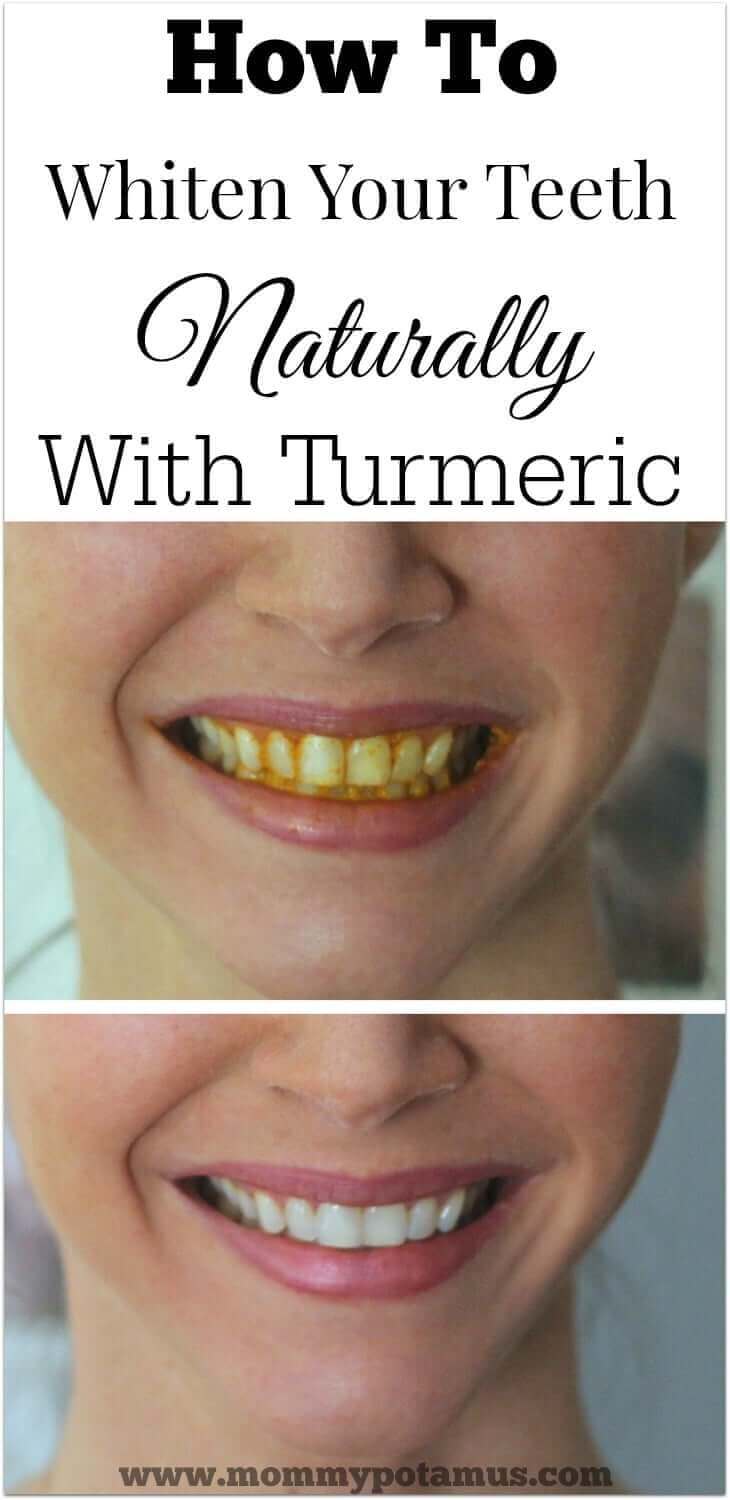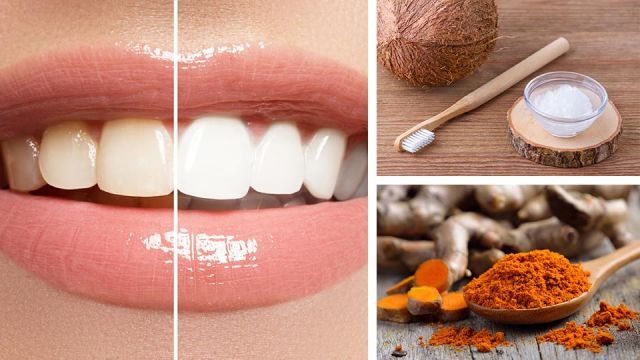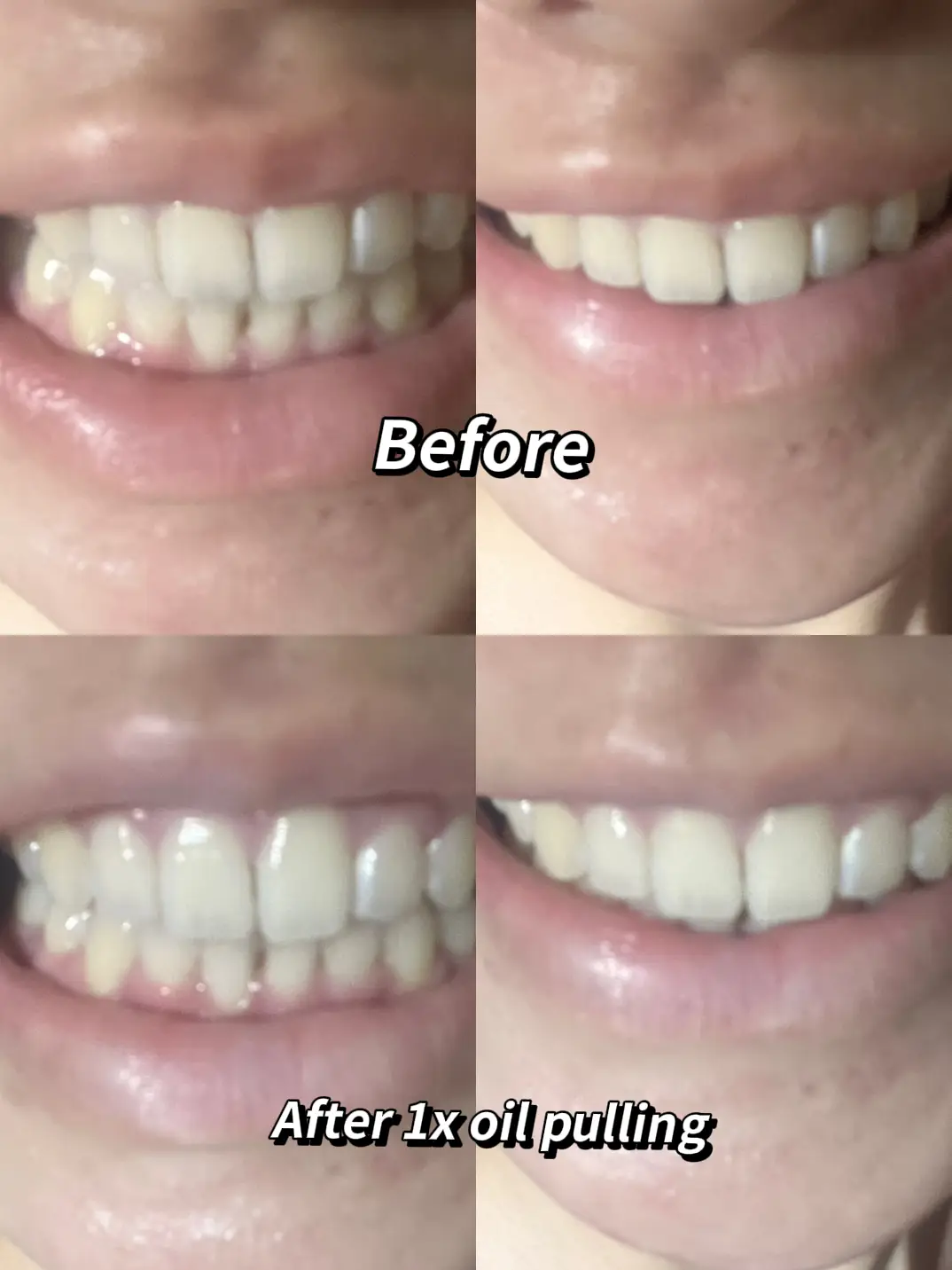Turmeric And Coconut Oil Teeth Before And After

The quest for a brighter, whiter smile has fueled countless trends, from professional bleaching to over-the-counter whitening strips. Amidst this landscape, natural remedies like turmeric and coconut oil have gained traction, promising a gentler, more holistic approach to teeth whitening. But do these kitchen staples truly deliver on their promises, or are they just another fleeting fad?
This article delves into the science, or lack thereof, behind using turmeric and coconut oil for teeth whitening. It explores the purported benefits, potential risks, and the perspectives of dental professionals. Ultimately, it aims to separate anecdotal evidence from scientific fact and provide readers with the information needed to make informed decisions about their oral health.
The Allure of Natural Whitening
The appeal of natural teeth whitening methods lies in their perceived safety and accessibility. Many individuals are wary of the harsh chemicals found in conventional whitening products and seek alternatives that align with a more natural lifestyle. Turmeric and coconut oil, readily available and relatively inexpensive, fit this bill perfectly.
Proponents of turmeric for teeth whitening often highlight its anti-inflammatory and antioxidant properties. They suggest that turmeric can help reduce gum inflammation and protect against bacteria, contributing to overall oral health and indirectly improving teeth appearance. The active compound in turmeric, curcumin, is touted as the key to its whitening potential.
Similarly, coconut oil pulling, an ancient Ayurvedic practice, has gained popularity as a natural way to detoxify the mouth and whiten teeth. The theory is that swishing coconut oil in the mouth for an extended period draws out bacteria, toxins, and stains, leading to a cleaner, brighter smile. It's a relatively simple concept and many find it a comfortable option.
Examining the Evidence: Turmeric
Despite the anecdotal claims and online testimonials, scientific evidence supporting turmeric's teeth whitening abilities is limited. While curcumin does possess anti-inflammatory and antioxidant properties, its effectiveness as a teeth whitener is questionable. Most studies that have examined turmeric's oral health benefits have focused on its anti-inflammatory effects on gums, not its whitening potential.
One major challenge is curcumin's poor bioavailability. This means that the body has difficulty absorbing and utilizing it effectively. Even if curcumin had a direct whitening effect, it might not be able to exert that effect significantly in the oral environment. Turmeric can stain fabric and surfaces yellow, raising concern for staining teeth despite claims of whitening.
Dr. Anita Patel, a dentist with 15 years of experience, states, "While turmeric may have some benefits for gum health, there's no solid scientific evidence to support its use as a teeth whitener. In fact, it can potentially stain teeth if not used carefully." This professional view highlights the caution necessary when considering this natural remedy.
Examining the Evidence: Coconut Oil
Coconut oil pulling, on the other hand, has garnered slightly more attention in the scientific community. Some studies have suggested that coconut oil can reduce plaque and bacteria in the mouth, similar to mouthwash. This reduction in bacteria could potentially contribute to improved oral hygiene and a brighter smile.
A study published in the Journal of Traditional and Complementary Medicine found that coconut oil pulling was effective in reducing Streptococcus mutans, a bacteria associated with tooth decay. However, it's important to note that these studies often have limitations, such as small sample sizes or short durations. While coconut oil may contribute to improved oral hygiene, it is not a substitute for regular brushing and flossing.
Furthermore, the whitening effect of coconut oil pulling is likely indirect. By reducing plaque and bacteria, it may help to remove surface stains and improve the overall appearance of teeth. However, it does not bleach the teeth or alter their inherent color. The American Dental Association emphasizes the importance of evidence-based practices.
Potential Risks and Considerations
While turmeric and coconut oil are generally considered safe, there are potential risks to consider. Turmeric, as mentioned before, can stain teeth, especially if used in excess or without proper rinsing. It's also important to be mindful of the source of turmeric, as some products may contain additives or contaminants.
Coconut oil pulling, while generally safe, can sometimes cause side effects such as jaw pain or muscle soreness, especially if performed for extended periods or with excessive force. It is crucial to use pure, unrefined coconut oil and to avoid swallowing the oil, as it contains bacteria and toxins that have been drawn from the mouth.
Furthermore, relying solely on turmeric or coconut oil for teeth whitening can be detrimental to oral health if it leads to neglecting professional dental care. Regular checkups and cleanings are essential for maintaining optimal oral health and addressing any underlying dental issues. Neglecting professional care can lead to more serious issues.
A Balanced Approach to Teeth Whitening
The most effective approach to teeth whitening involves a combination of good oral hygiene practices, professional dental care, and potentially, the judicious use of whitening products. Brushing twice daily with fluoride toothpaste, flossing daily, and visiting the dentist regularly are fundamental to maintaining a healthy and bright smile.
If considering teeth whitening treatments, consulting with a dentist is crucial. A dentist can assess your individual needs and recommend the most appropriate whitening option, whether it's professional bleaching, over-the-counter products, or a combination of approaches. They can also advise on the potential risks and benefits of each option.
While turmeric and coconut oil may offer some benefits for oral hygiene, they should not be considered a substitute for professional dental care or evidence-based whitening treatments. More research is needed to fully understand the potential of these natural remedies for teeth whitening. A cautious approach is always best.
Looking Ahead: Future Research and Development
Future research could focus on investigating the specific mechanisms by which turmeric and coconut oil might impact teeth whitening. Studies could explore the optimal concentrations and application methods for these natural remedies, as well as their potential interactions with other oral care products.
Researchers could also investigate the development of novel formulations that enhance the bioavailability of curcumin, the active compound in turmeric. This could potentially improve its effectiveness as an oral health agent. Controlled clinical trials are needed to determine the true efficacy of these natural methods.
In conclusion, while turmeric and coconut oil have garnered attention as natural teeth whitening agents, the scientific evidence supporting their claims is limited. A balanced approach that prioritizes good oral hygiene, professional dental care, and evidence-based whitening treatments is the most effective way to achieve a healthy and bright smile. Always consult with a dentist before trying any new oral care remedy.


















